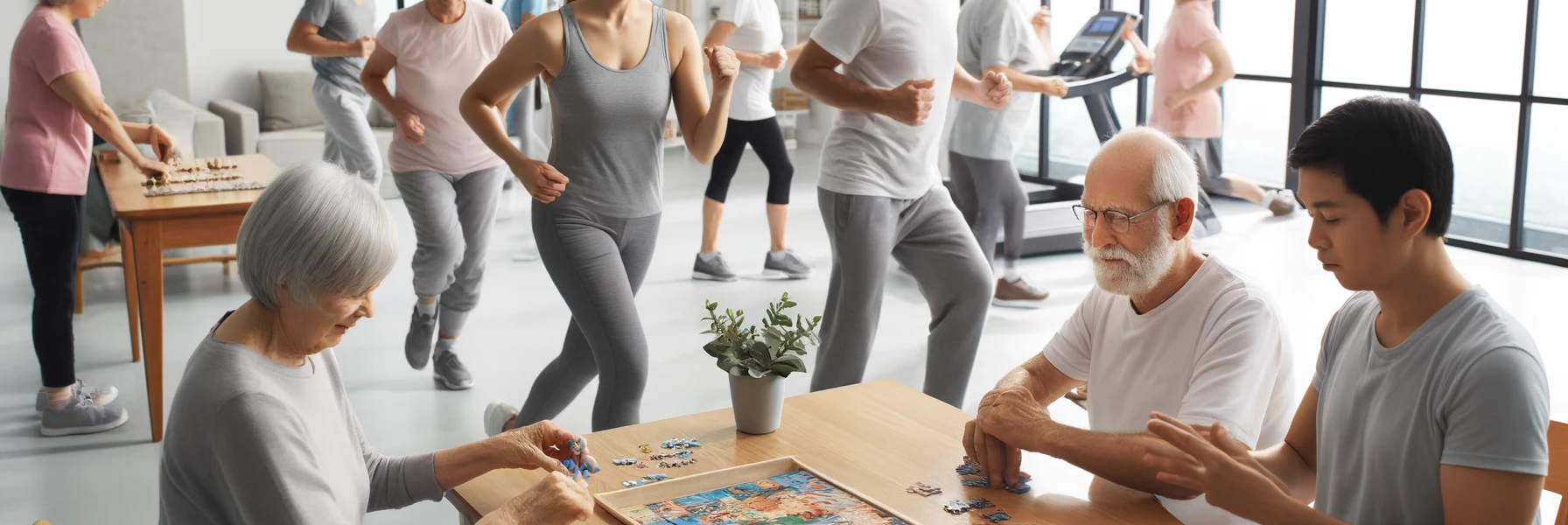Breakthrough Study Combines Unorthodox Mental and Physical Games to Combat Alzheimer’s
A recent study led by Vanessa Lissek at Ruhr University Bochum has uncovered a promising new approach to preventing Alzheimer’s disease by combining physical and mental training. The study involved 39 people with mild cognitive impairment (MCI), a condition characterized by noticeable cognitive decline that is greater than expected for a person’s age but not severe enough to interfere significantly with daily life.
This integrated approach reflects Dr. Don Colbert’s emphasis on holistic health, which involves stimulating both the mind and body to achieve overall well-being.
Training Programs in the Study
The study participants were split into two groups to test different training methods.
- SpeedCourt® Training: This system integrates physical movements with cognitive tasks. Participants had to move quickly between points on a court while responding to visual and audio cues. For instance, they might see a light or hear a sound and have to move to a specific spot in response. This simultaneous stimulation of physical and mental skills is designed to maximize cognitive engagement.
- Fitfor100 Program: This traditional program separated physical and mental exercises. Physical activities included walking and stretching, while cognitive tasks involved memory games and puzzles.
Significant Findings
The results of the study were impressive for both groups, but particularly notable for those in the SpeedCourt® training.
- Physical Improvements: Both groups showed significant improvements in physical abilities, including hand strength and balance. These physical gains are crucial because they help reduce the risk of falls and improve overall mobility, which is often compromised in individuals with cognitive impairments.
- Cognitive Benefits: The cognitive improvements were more pronounced in the SpeedCourt® group. Participants in this group demonstrated significant enhancements in cognitive functions such as memory, attention, and problem-solving skills. Remarkably, 15% of participants in the SpeedCourt® group were reclassified from MCI to non-MCI status based on their improved scores on the CERAD test (Consortium to Establish a Registry for Alzheimer’s Disease).
- Long-Term Effects: The positive effects persisted for at least three months after the training ended. This finding suggests that combined physical and mental training can have lasting benefits, potentially slowing the progression of cognitive decline.
Dr. Colbert’s Perspective
Dr. Don Colbert supports this holistic approach, emphasizing that combining mental and physical exercises can significantly enhance overall cognitive health. He suggests several practical steps to incorporate these findings into everyday life:
- Daily Physical Activities: Engage in exercises that challenge both the body and mind. Activities like dance classes, martial arts, or sports that require quick thinking and physical coordination can be particularly beneficial.
- Mental Stimulation: Incorporate cognitive tasks into physical routines. For instance, while walking, try to memorize a list of words or solve puzzles. This dual engagement can help maintain cognitive functions.
- Healthy Diet: Support physical and mental health with a balanced diet rich in anti-inflammatory foods. Dr. Colbert recommends foods like leafy greens, fatty fish, nuts, and berries, which are known for their brain-boosting properties.
Conclusion and Future Directions
This study is a significant step forward in understanding how to combat Alzheimer’s disease. By showing that combined physical and mental training can improve cognitive functions and reclassify MCI patients as non-MCI, the research offers hope for new non-pharmacological interventions in dementia prevention.
Future research should continue to explore the long-term effects of such interventions and investigate how different types of physical and cognitive activities can be optimized for maximum benefit. Researchers are hopeful that ongoing studies will further validate these findings and lead to more widespread adoption of these holistic training methods.

















